Testing:
Before we begin the storage benchmarks, we need to realize that the Momentus XT is different than normal drives since it includes SSD storage for your most common files. Seagates Adaptive Memory technology uses algorithms to evalute your most commonly used files and move it into the SSD memory; all in real time.
Crystal Disk Mark:
CrystalDiskMark has been a favorite test of mine for many years, it seems to be accurate, is easy to use and understand the results. It is capable of testing sequential and random data transfer speeds for all types of drives. All tests in CrystalDiskMark were conducted using 1000MB test files; the average of 3 test runs is presented in the charts below. In these tests, the higher the score the better the performance.
For the Sequential Read test, the Seagate Momentus XT scored below both SSDs, but a little faster than a 3.5" Seagate 1TB drive.
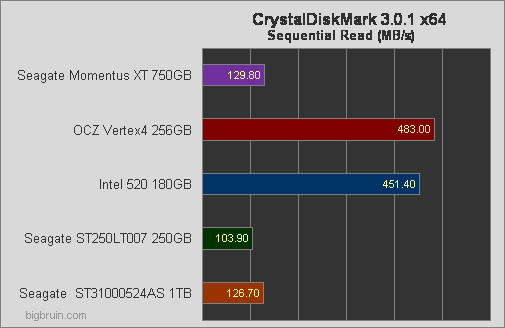
The Sequential Write results were similar to the Sequential Read test; the Momentus XT was slightly faster then the 3.5" Seagate 1TB, but slower than the SSDs.
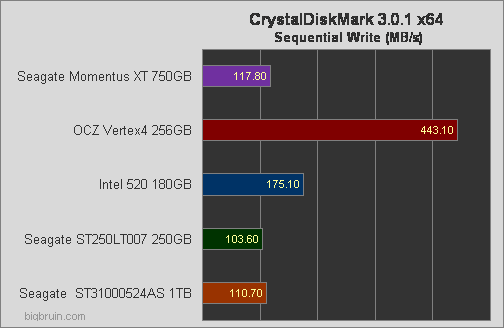
During the 512K Read test, the Momentus XT received a nearly identical score to the 3.5" Seagate drive; and of course it was slower than the SSDs.
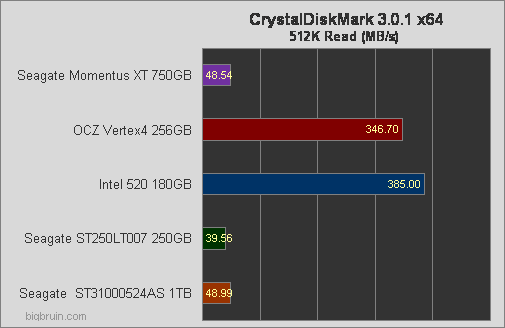
Here the results were slightly different, the Momentus XT was very slightly slower than the 3.5" Seagate 1TB, but still faster than a comparable 2.5" Seagate 7200RPM drive.
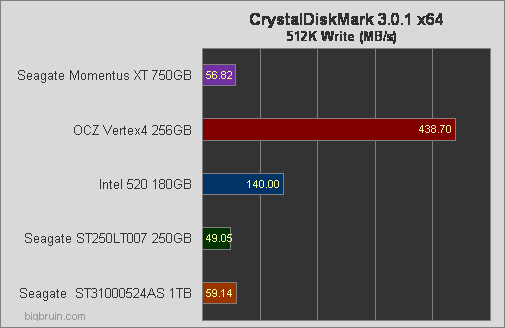
The Momentus XT was quite a bit faster than either of the other two Seagate drives in the 4K Read test; close to twice the speed of them.
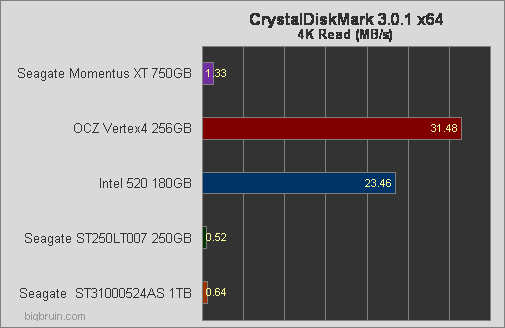
As expected the Momentus XT was faster than the two Seagate drives but slower than the SSDs for the 4K Write test.
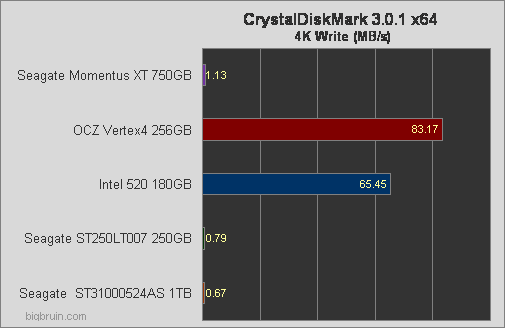
Looking over the results, it appears that CrystalDiskMark was not moved to the cache portion of the drive, even after running CrystalDiskMark 5 times to allow it time to cache files. What the above charts do show is that the Seagate Momentus XT 750GB performs pretty close to a standard 3.5" hard drive, sometimes even out performing it.